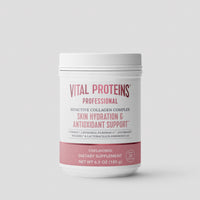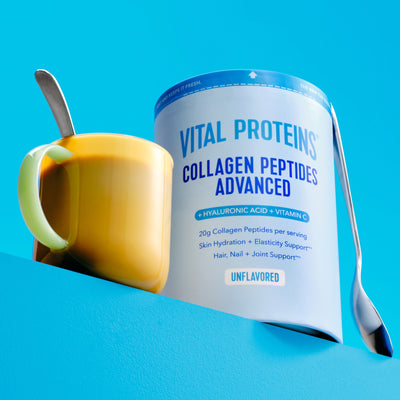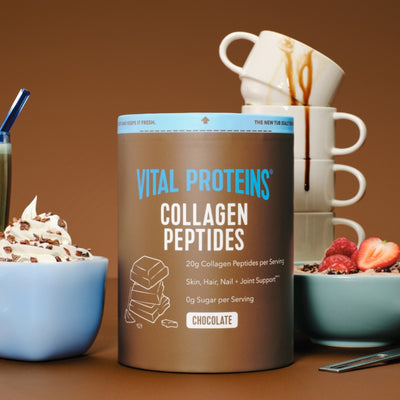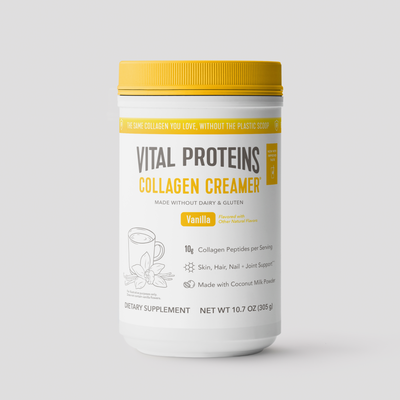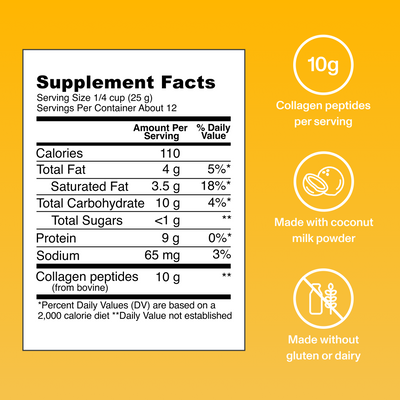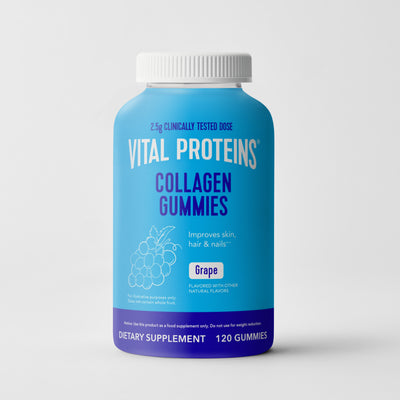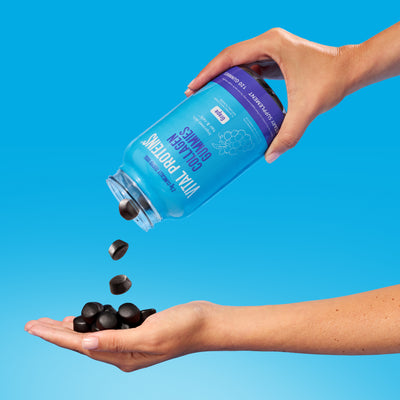Did you know that the average person opens their fridge around 15 to 20 times per day? That’s a lot of time spent looking at food, which is precisely why you want the right items staring back at you.
Instead of processed meats, soda, or leftover Pad Thai, you’ll be better off with lean proteins, healthy fats, and various fruits and vegetable options.
Thanks to the expert knowledge of several registered dietitians, we created a master list of nine foods every well-stocked fridge should contain. Here’s to healthy eating on the reg!

Eggs
If you want to get crackin’ on your health goals, eggs are a great place to start. In addition to being delicious and an inexpensive protein source, eggs are extremely versatile.
“They can be eaten boiled, poached, scrambled or fried for breakfast,” says Wendy Lord, registered dietitian, and consultant for Sensible Digs. Another option is to prepare them hard-boiled for a high-protein snack.
Although egg yolks have gained a bad reputation for being linked to high cholesterol, Kayla Girgen, RD, LD, and Founder of Nutrition Untapped, says that you shouldn’t skip it. “The yolk which houses a majority of the vitamins, minerals and healthy fats.”
Fresh baby greens
Functional dietitian Jenna Volpe says that fresh baby greens (think spinach, kale and arugula) are an absolute must for your fridge. “They’re nutritional powerhouses and they make a big difference in energy levels and overall vitality.”
She incorporates them into a meal at least once a day, whether that’s as the base of a salad, greens to a smoothie or a layer in a wrap or sandwich.
Don’t forget that you can cook with fresh baby greens as well! “Since they only take a few minutes to cook, I usually throw some sautéed greens into everything from omelets to soups to stir-fry and pasta dishes,” Volpe tells Lively. “Or I’ll also add some Celtic salt and garlic powder to make them a stand-alone side with a meal.”
Dark chocolate
When you’re craving chocolate, it’s pretty much impossible to munch on carrots or some other vegetable instead. That’s why dark chocolate is the perfect compromise for your sweet tooth. “Quality dark chocolate contains much more cacao and less sugar with its 60 percent cocoa mass compared to milk chocolate,” explains Amber Trejo, MS, RDN.
Dark chocolate can be a good source soluble fiber, iron, magnesium, zinc, manganese copper, and other minerals, explains Trejo. There are many ways to enjoy: nibble on a piece or use it as the star ingredient of a nut and berry trail mix, adds Volpe.
Related Articles
Greek yogurt
Move over, regular yogurt! Containing twice as much protein as regular yogurt, Greek yogurt is the fridge hero we all need, says Trejo. “Greek yogurt is rich in vitamins and minerals such as calcium, phosphorus, zinc, Vitamin A, Vitamin B12 and more,” she adds.
The dairy product is cultured and fermented, which means that it can have positive effects on gut health. It’s also extremely versatile. Lord, for instance, often has yogurt for breakfast. She likes it served with homemade granola or blended into a smoothie with some fruit, peanut butter and oats. She also uses it in some dinner recipes, explaining that “a handy low-fat alternative to cream in stews and casseroles, not to mention cauliflower cheese and creamed spinach.”
Meal-prepped proteins
“The most common thing I hear from busy people is their lack of time to cook,” says Trego. Her quick fix for this is to prep your protein – chicken, fish, pork, and so on—ahead of time. Hello, meal prep Sundays! This way, you spend less time cooking throughout the week.
While you’re conquering meal prep, consider helping future you in other ways, like shredding cheese – another fridge staple – ahead of time. “Have a variety of cheese on-hand to enjoy solo as a snack or to sprinkle on the main entrée or side dish,” says Girgen. “A little bit goes a long way with crumbled cheese such as feta, goat or bleu cheese.”

Fruits
It should come as no surprise that we all need to eat plenty of fruits and vegetables every day. “They are an excellent source of vitamins, minerals, phytonutrients and both soluble and insoluble fiber,” says Volpe.
You can’t go wrong with apples, bananas and oranges. There’s also something berry special about berries. And no, it’s not just that they are basically nature’s Skittles. “Berries are packed with vitamins and antioxidants, and they're also tasty and versatile!” says Volpe. Shop in season or shop your favorites and all them to cereals, overnight oats or desserts.
Chopped vegetables
Having chopped veggies in the fridge makes it so much easier to put together a quick meal or snack. Bell peppers, for instance, add crunch to virtually any recipe, says Girgen.
She recommends making stuffed peppers as a quick, healthy meal the whole family will love or using the cut-up strips as a snack or as the base of bell pepper nachos (simply add your favorite taco toppings!).

Cottage cheese
If you’re not a cottage cheese fan, you’re missing out. It’s “a source of calcium and protein that can also be eaten in a variety of ways,” explains Lord. You can spread it on whole-wheat crackers, add it to a salad or use it as a healthier alternative to cream in creamy sauces.
Hummus
This delicious healthy fat, made from chickpeas and blended with tahini, olive oil and spices, deserves the same kind of attention as avocado.
“It is a great nutrient-dense food source, rich in iron, vitamin B6 and magnesium,” says Trejo. Like cottage cheese, you can eat it as a healthy snack on whole wheat crackers. Additionally, you can use it as a dip for carrots and cucumber or even spread it on a sandwich for a satiating filling.
Shop Vital Faves





